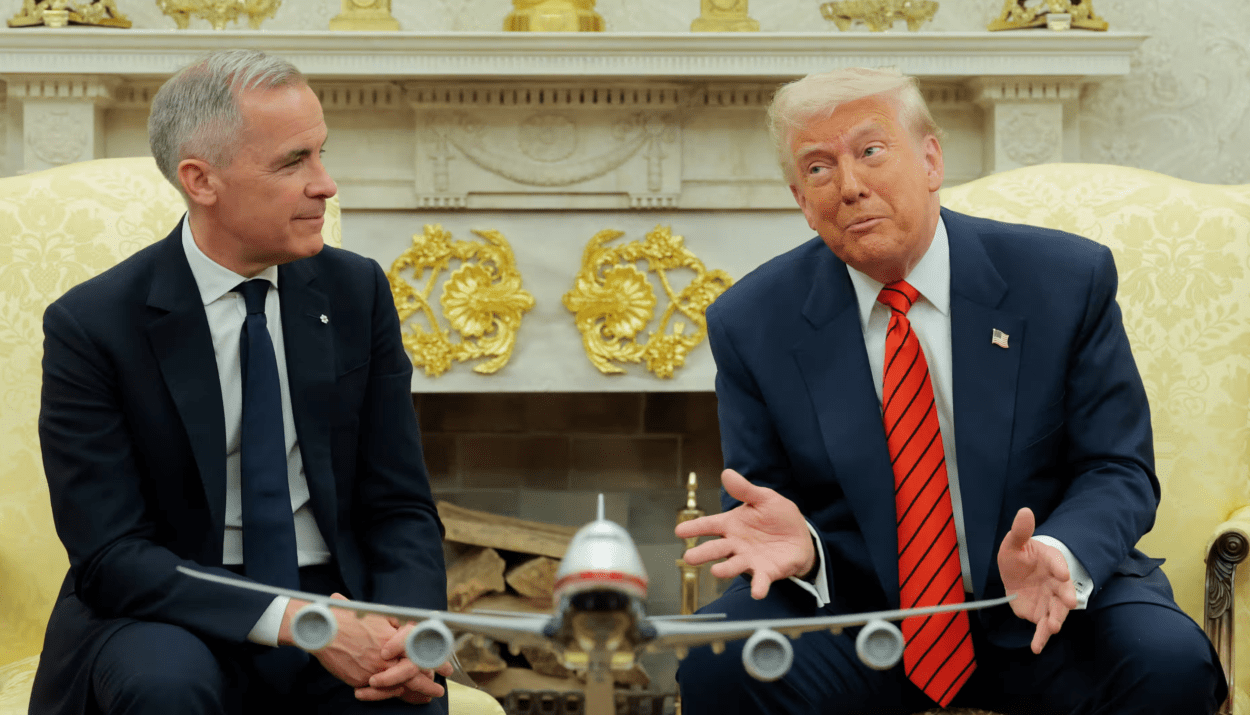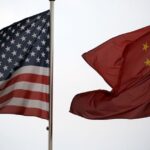In a highly anticipated Oval Office meeting on May 6, U.S. President Donald Trump and newly elected Canadian Prime Minister Mark Carney tackled thorny issues like tariffs, trade, and even the provocative idea of Canada becoming the 51st U.S. state — but the meeting remained warm and surprisingly lighthearted.
Here’s a full roundup of the key moments and quotes.
Carney Asserts Canadian Sovereignty
While Trump has floated the idea of absorbing Canada, Carney made his stance crystal clear:
“As you know from real estate, there are some places that are never for sale,” Carney told Trump, referencing his real estate background.
“Having met with the owners of Canada over the course of the campaign these last several months, it’s not for sale — won’t be for sale — ever.”
Later, when Trump teased the idea again, Carney mouthed “never” repeatedly to the reporters and reaffirmed:
“Respectfully, Canadians’ view on this is not going to change.”
Trump Reflects on Canada’s Election
Trump, known for his blunt style, joked about his role in Carney’s surprise political comeback:
“I think I was probably the greatest thing that happened to him. But I can’t take full credit. His party was losing by a lot. And he ended up winning. So I really want to congratulate him. It was probably one of the greatest comebacks in the history of politics. Maybe even greater than mine.”
Mutual Praise
Despite past friction with Carney’s predecessor, Justin Trudeau, Trump praised Carney:
“Very good” and “very talented person” with whom he shared “a lot of things in common.”
Carney responded in kind:
“You’re a transformational president,” praising Trump’s “relentless focus on the American worker.”
He added, “The history of Canada and the US is we’re stronger when we work together, and there are many opportunities to work together. I look forward to addressing some of those issues that we have, but also finding those areas of mutual cooperation so we can go forward.”
On Tariffs and Trade
Reporters pressed Trump on whether Carney could sway him on tariffs:
“Is there anything he can say to you in the course of your meeting with him today that can get you to lift tariffs on Canada?”
Trump’s reply: “No.”
Trump explained his reasoning:
“We want to make our own cars. We don’t really want cars from Canada, and we put tariffs on cars from Canada. At a certain point, it won’t make economic sense for Canada to build those cars.”
“And we don’t want steel from Canada because we’re making our own steel, and we’re having massive steel plants being built right now as we speak.”
“They have a surplus with us, and there’s no reason for us to be subsidising Canada. Canada will have to be able to take care of itself economically. I assume they can.”
Carney countered:
“We are the largest client of the United States in the totality of all the goods. So we are the largest client in the United States.”
“Fifty percent of a car that comes from Canada is American. That’s not like anywhere else in the world.”
Both agreed the USMCA trade deal needs revisiting:
Trump: “The USMCA is great for all countries, but it’s a transitional step that would get renegotiated very shortly.”
Carney: “It is a basis for a broader negotiation. Some things about it are going to have to change.”
“Part of the way you’ve conducted these tariffs has taken advantage of existing aspects of USMCA, so it’s going to have to change.”
International Affairs: Houthis Breakthrough
Trump pivoted to global issues, unexpectedly announcing a halt to U.S. airstrikes on Yemen’s Houthis:
“We had some very good news last night. They’ve announced — to us, at least — that they don’t want to fight anymore. They just don’t want to fight. And we will honour that. And we will stop the bombings.”
He added:
“They say they will not be blowing up ships anymore. And that’s the purpose of what we were doing. We are going to stop the bombing of the Houthis effective immediately.”
A senior Houthi official later cautioned on social media that the deal “still needed to be evaluated on the ground first.”
What’s Next
Carney summed up the meeting outside the Canadian embassy:
“Today marked the end of the beginning of a process of the United States and Canada redefining that relationship of working together. The question is how we will cooperate in the future.”
The Trump–Carney meeting struck a friendly tone with mutual praise, but key tensions over tariffs, trade, and Canadian sovereignty remain. While both leaders signaled openness to future talks, tough negotiations lie ahead. Expect continued trade friction and cautious cooperation.
Disclosure: This article does not represent investment advice. The content and materials featured on this page are for educational purposes only.
Related:
US-China Trade Talks to Start This Week as Tariffs Start to Bite
India, UK successfully conclude mutually beneficial Free Trade Agreement
EU Eyes €100 Billion of US Goods With Tariffs If Talks Fail
China, Japan and South Korea will jointly respond to US tariffs
Supermicro Q3 Fiscal 2025 Earnings Preview and Prediction: What to Expect
Palantir Q1 2025 Earnings Report — Why the Stock Popped (Then Dropped)










